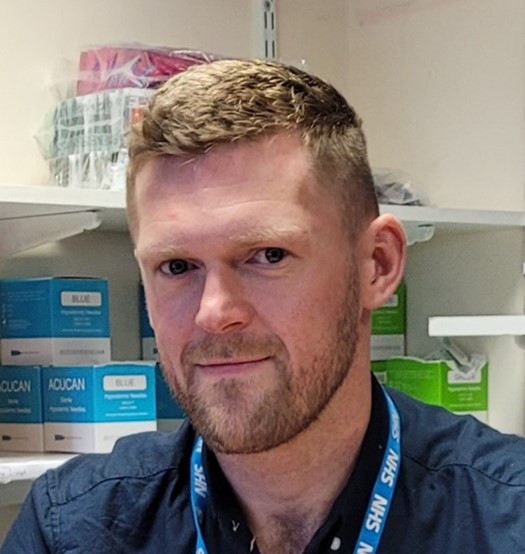Occupational Therapists (or OTs) are registered health and social care professionals. OTs work in varied health and social care settings including hospitals, schools, homelessness services, prisons, mental health and forensic teams and also, drug and alcohol services. The profession is focused on working collaboratively with individuals to ensure they can live purposeful and satisfying lives by doing all the things they want to, need to or are expected to do.
All the many things that we do, how, where and whom we do them with can give our lives a sense of purpose and meaning. Meaningful ‘doing’ can also offer structure and routine to life, provide a sense of fulfilment as well as promoting a sense of connection and belonging with others. OTs believe that our identity both shapes and is shaped by the things that we do; that we are happier and healthier when we participate in activities (or occupations) that are personally meaningful.
Occupational Therapists are duel trained in physical and mental health, ideally situated to provide holistic assessment and intervention. They understand the dynamic interaction between an individual’s abilities, their environment and the activities they wish to participate in. They apply this understanding to problem solve and overcome barriers to participation by adapting the environment (both physical and social) or finding ways to make activities more accessible for an individual. Our ability and motivation to participate can be significantly altered by changes in our surroundings or our health. An example of this might include the changes to life that arise from use of alcohol and other drugs.

Image source: Pixabay.com
As a profession, we recognise that all behaviour is meaningful, even those that are not socially or legally sanctioned, fully explored and those detrimental to health or even survival. To the un-initiated, ‘self-medication’ with substances is easily understood. When delving deeper to explore the meaning behind use of substances, it can yield far richer understanding that may provide essential components in the co-production of recovery.
Understanding that the ‘meaningful doing’ of addiction and dependency may organise individuals use of time; provide certainty of identity (often a stigmatised one); a sense of connection to others and belonging to community; a means to exert control over one’s life, cause for motivation and a guiding purpose. Exploring these elements on an individual basis, and developing understanding into the occupational influence of their use, one can begin to support detailed meaningful plans for recovery. If someone enters the lifestyle transitions of recovery, unprepared for the losses experienced from these defining and organising influences, it might perpetuate relapse and negative self-perceptions. This emphasises the need for fully comprehensive preparation within the therapeutic alliance.

Image source: Pixabay.com
Referral to Occupational Therapy is mentioned in the orange book under ‘cognitive impairment’ to request a ‘functional assessment’ for those with complex needs. OTs will go beyond the typical cognitive screens, to complete observational assessments of activities in different environments to help understand and strength treatment approaches for those with differences in cognitive abilities. As our understanding develops regarding Alcohol Related Brain Damage (ARBD), OTs are increasingly involved in supporting individuals with rehabilitation and ensuring they can live as independently as is possible. There are, however, many more causes why someone’s cognition may be impacted.
A systematic review and meta-analysis of the causes of relapse in alcohol use disorders identified that a higher sense of ‘self-efficacy’ along with a perceived sense of ‘purpose’ and meaning in life were considered significant protective factors against relapse. Arguably, these can only be gained through participating in meaningful life roles. Further research in the field has identified the protective influence of ‘life purpose’ against cues to drink alcohol. For these reasons, finding ways to incorporate discussion around enhancing or re-gaining a sense of life purpose should happen early on when exploring individuals’ values and aspirations.
A recent scoping review of occupational therapy in substance use settings found the most common interventions focused on the development of life skills and re-engagement in meaningful routines and roles. Whilst current treatment is framed by the holistic biopsychosocial approach, it has been argued that the distinct value occupational therapy brings to this setting is borne from our focus on all areas of behaviour and occupation. OTs support individuals gaining a sense of ‘mastery’ by apply their strengths, skills and knowledge, to natural environments and live situations that can sustain recovery.
The benefit of occupational therapy is the flexibility in approaches to treatment when taking a ‘whole person’ approach. Understanding the dynamic between the individual, their environment and occupations, intervention can be creative to empower individuals to become agents of change in their own recovery. Some examples of interventions might look like:
- Identifying and overcoming the impacts of physical and mental health conditions on abilities to participate in self-care, productive and leisure occupations.
- Identifying vocational opportunities based on interests; assessing for and implementing strategies to support participation in the ‘just-right’ challenge.
- Exploring and identifying individuals’ sensory preferences, and how applying sensory approaches may support participation in occupation or manage the impacts of trauma.
- Exploring and enhancing strategies around organisation, time use and problem solving based on individual skills and cognitive abilities.
- Identifying leisure interests and graded ways to overcome dampened motivation or ability to enjoy non-substance related activities.
You may be fortunate enough to have an occupational therapist within your service. However, you will be more likely to interact with them through a community mental health team; inpatient psychiatric unit or housing provider. Don’t be hesitant in seeking their input, especially through joint service frameworks between substance use and mental health services. You might also find us working in residential rehabilitation, inpatient detox units or bespoke day services.

Image: Jon Fisher is an Occupational Therapist working in Gwent Specialist Substance Misuse Service (GSSMS)
Occupational Therapists have been shown to be effective when working a variety of settings including reducing the length of stays by 20% in mental health units; reducing the demand on GP surgeries for those with physical and mental health conditions by increasing individuals’ confidence to self-manage their conditions and supporting people with severe mental health difficulties back into employment.
There is no standard approach to treatment and one size never fits all. Applying this perspective to someone’s recovery, as an Occupational Therapist I might routinely consider:
- How will the changes in recovery influence identity and purpose if someone is no longer ‘doing’ the things they used to do? What roles does someone want to participate in, as roles are based around meaningful doing?
- What practical, inter and intra-personal skills are needed to begin considering a life without substances, and just as importantly, what graded approach to acquire these can be taken that accounts for individual strengths and abilities?
- From where can a sense of connection and belonging be drawn when someone no longer shares the activity of using substance in common? What other activities can provide opportunity for connection that are congruent with newly forming identities and interests?
- How can a balance of self-care, leisure and productive occupations be established to offer sustainable routine and structure? Can these be used during times of uncertainty and discomfort?
- How can someone take the skills they have learned in groups and courses, and apply them to ‘live’ real life situations in order to gain a sense of self-efficacy and agency?
We are all occupational beings with an innate desire to occupy our time. When occupations shift significantly as part of recovery it might be the difference between living, or just existing.
Jon Fisher is an Occupational Therapist currently working in Aneurin Bevan Specialist Drug and Alcohol Services in South Wales, a service for those with physical or mental health complexities alongside substance use. Prior to being an Occupational Therapist, he worked in various community substance use services in England. Since qualifying as an Occupational Therapist, he has practiced in varied mental health teams until the opportunity arose to develop this new role. For responses, or to find out more details please contact via Jonathan.Fisher2@wales.nhs.uk or Twitter @fisheraddiction

